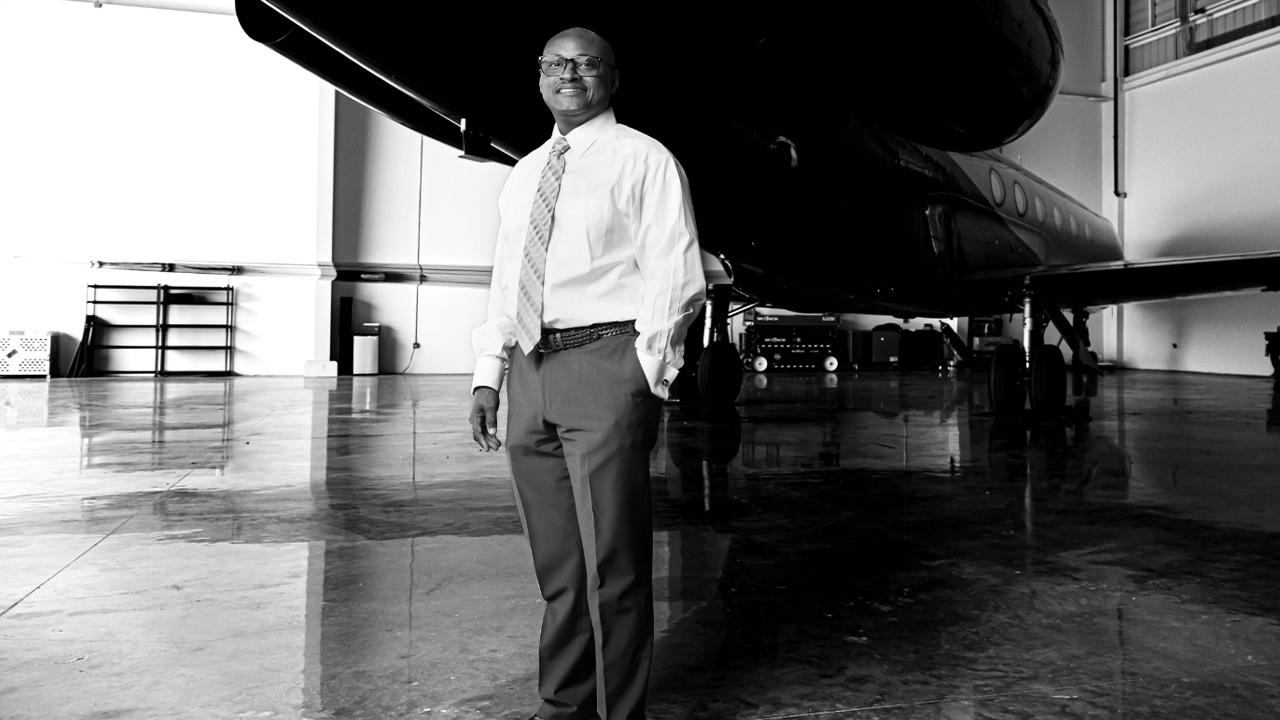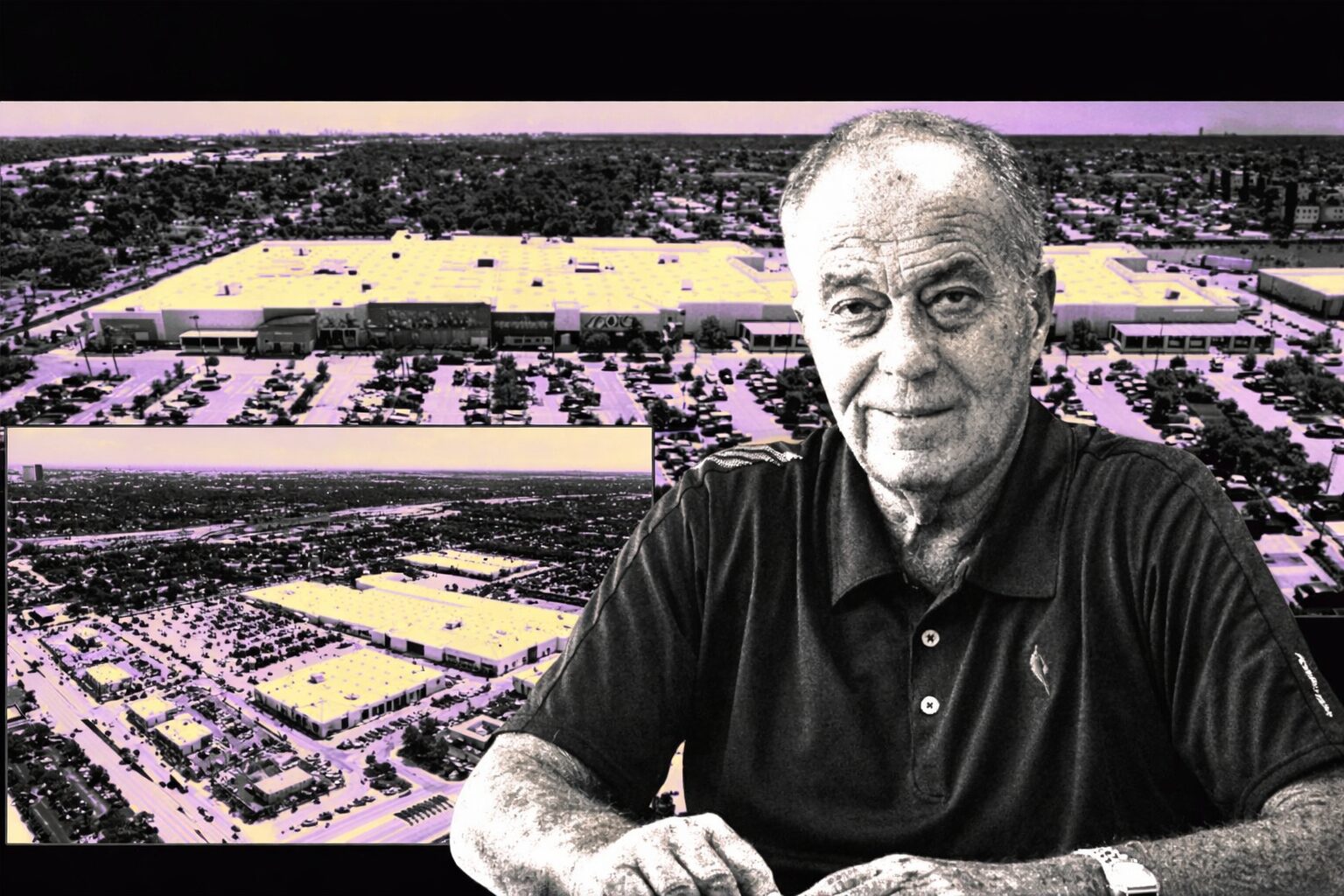To tour Fort Lauderdale Executive Airport (FXE), particularly with someone like Rufus James, is to enter a world that is at once rarefied and pragmatic, technical and aspirational. From the soft-spoken yet formidable airport manager—who still maintains his army bearing from his years of service during the Persian Gulf War—you learn why the general aviation facility, anchored by its two-decade-old central hub, saw a bit of a bump last season (Lionel Messi, of course), and how it got built in the first place (the federal government). You come to understand the ways in which the airport is a sprawling landowner that is even bigger than it appears, as well as a repository for elite dreams and prerogatives.
Born in St. Lucia and raised in Brooklyn (traces of the accent are still detectable), James has been on the job for 24 years following a two-year stint at Fort Lauderdale-Hollywood International Airport. (He became a pilot in his early twenties before gravitating toward operations.) “Aviation is something I’ve been passionate about since my first airplane ride when I was about five years old, when I came to this country,” he recalls.
He knows that maintaining a quarter-century tenure is not exactly typical in our job-hopping era: “I remember my career advisor saying that you will change jobs at least five times, because this is the culture that we’re in. And I had to say to her, ‘Well, I don’t want to go from job to job to job to job. It’s about finding something that I love to do, knowing that there’s a chance for promotion and career growth, as long as I’m enjoying what I’m doing every day.”
To say that the man is wealth of aviation knowledge would be a supreme understatement. SFBW picked the brain of Rufus James about the following:
By the Numbers.
“FXE has more than 500 aircraft based there. Around 30% are jet airplanes, 60% are prop jets, with helicopters bringing up the rear. We are in the top 10 of general aviation airports in the country, in terms of operations, landings and takeoffs, and we’re in the top five busiest airports for itinerant traffic—traffic that originates from somewhere else in the country. And we are number one in the country among the busiest general aviation customs clearing facilities.”
Economic Impact.
“The Department of Transportation does an economic impact study of all the airports in the state every four years, so from a general aviation standpoint, in terms of economic impact, we’re ranked number one. They look at factors like jobs created and payroll.”
The Cessna Caravan.
“The Caravan is one of the safest airplanes—it has one of the best safety records in the industry. Any type of charter operation aircraft—even if it’s not particularly a jet and has a propeller attached to it—has a jet engine and is considered a private jet.”
How World War Two transformed aviation—including passenger flying.
“Most airports in the country were built leading up to World War Two, to get pilots ready for that war. In the early 1940s we had Fort Lauderdale Airport, which was a naval training facility and FXE, which at the time was called Prospect Field, was a satellite airport. So, at the end of the war, the federal government had all these airports, and they decided to deed these airports to different municipalities. They came with strings: The municipality would have to maintain the airports. In some cases, it’s a state-owned airport and other cases it’ll be a county, city or local municipality type.”
Night flying is relatively new.
“The Wright brothers had a strip of land to take off and land on, it wasn’t paved, and, believe it or not, nighttime flight never occurred. That would really be taking your life into your own hands. But then came a crew of people who would light torches to allow the airplanes to see where the runway was so they could land. That would be considered the first form of air traffic control.”
The demand for pilots.
“With the shortage that exists, when you complete the program, you can get a job that’ll start you at $90,000 a year and within a couple of years you may be up to $200,000, so the industry is trying to get individuals interested in those careers. It’s not even so much the case now that [potential pilots] go to school to learn to fly—because we’ve got an individual who earned a degree in zoology and decided to become a pilot.”
What’s it’s like to fly out of FXE.
“They arrive, the airplane is pulled out, they get on board, and they’re off to their destination. In a charter scenario, the passengers obviously have to arrive well in advance of the aircraft being here and so forth because they do run through some other security protocols to make sure all is adequate.”
Sports stars and celebrity clientele at FXE.
“That’s the privilege of general aviation—to keep it private.”
Well, we tried.
Photos by Larry Wood














